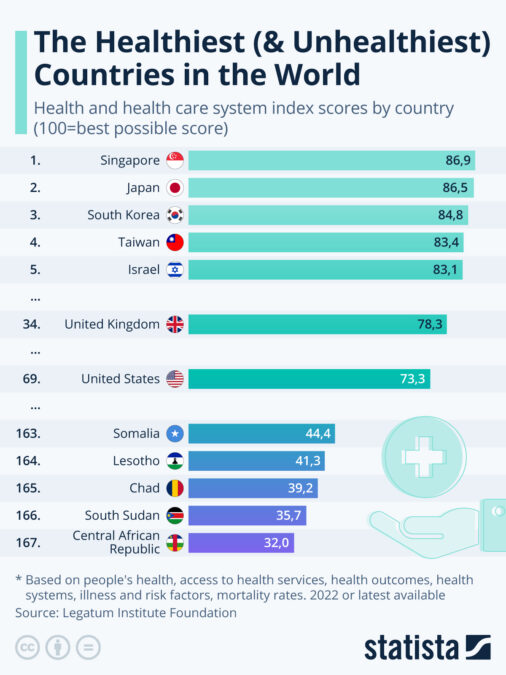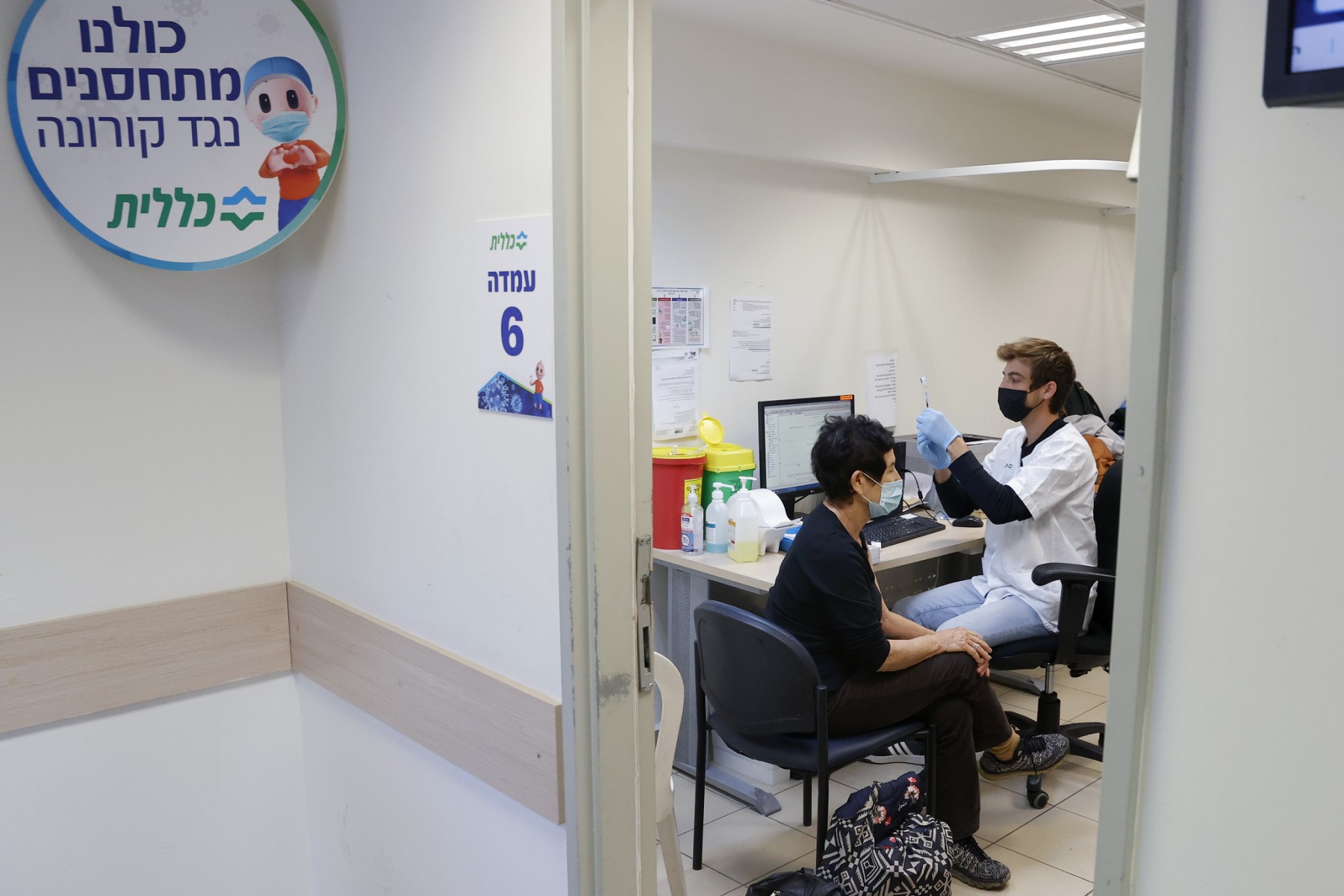Dubai, UAE – Israel ranks in 5th place out of the 167 countries on the index of the world’s healthiest and unhealthiest countries.
Singapore was rated as having the top service and state of health globally in 2023.
Asia is well represented generally, with the four top places rounded off by Japan, South Korea and Taiwan.
The United States trails just behind the UK in rank 38.
The bottom five places are Somalia, Lesotho, Chad, South Sudan and the Central African Republic.
The index is based on parameters such as access to health services and the population’s state of health including mortality rates, illness and risk factors.
The index which looks at how different health systems compare around the world has been prepared by Statista’s Anna Fleck, using data from Legatum Prosperity Index, created by The Legatum Institute Foundation, a London think tank.

The ranking was created as part of a wider index, which also looks at indicators such as education, investment environment and governance.
Israeli healthcare system
The health care in Israeli is a universal statutory health insurance system.
The Ministry of Health has overall responsibility for the health of the population and the effective functioning of the health care system. Israel’s Ministry of Health also plays a major role in the direct provision of care. It owns and operates almost half of the nation’s acute hospital beds, approximately two thirds of the psychiatric hospital beds and just under 10 percent of the chronic disease beds.
MENA region
While some countries in the region are grappling with struggling healthcare systems, others boast well-funded and efficiently operating systems. Certain hospitals in the area have transformed into prominent medical hubs, attracting patients from around the globe.
Saudi Arabia’s healthcare system offers free public healthcare to both nationals and expatriates working in the public sector, with the Ministry of Health serving as the primary provider of medical services and overseeing most hospital facilities in the country.
The United Arab Emirates (UAE) has gained worldwide recognition for its high-quality medical services in various fields such as ophthalmology, dental care, cancer treatment, and cosmetic surgery.
The UAE’s healthcare sector also draws medical tourists from the region and beyond, contributing to its position as the 22nd-ranked country in the 2020 World Index of Healthcare Innovation.

